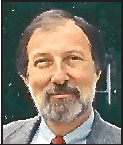By David Taub
The Enduring Wall. No, I am not talking about steel and concrete running along the southern border of Texas, New Mexico, Arizona and California. That masquerades, more or less, as a wall, but it’s hardly enduring.
Rather, I am referring to a concept, a principle, a harbinger of a democratic republic called E Pluribus Unum — out of many, one. It is the governmental principle of what has become known as the Separation of Church (i.e., all religions) and State (i.e., the government, Federal, State, Local and communal).
For most of the past half century, America’s educational system has failed to educate our students about the history of the founding of our grand experiment with democracy and a “republic” form of government. When I was in high school, (sometime in the Pleistocene era), our core curriculum included the study of U.S. History, Civics and Government. Alas, no longer.
Nonetheless, most folks today would agree that our “Founding Fathers” were men of religion. This is true. Most of the early immigrants into the British colonies of north America were fleeing tyrannical religious demands of European countries, encapsulated by the dictum, “Believe in or adhere to OUR religion, or suffer the consequences.”
When options are few, decisions are easy, I often opine. Thus, early denizens came to the eastern shores of what would become the US of A, not because they did not have religious beliefs, but rather to ensure to themselves the right to practice whatever religion they wished — a freedom denied them in Europe but which “The Colonies” offered them.
The bedrock of our unique American culture and civilization is freedom of religion — that is, free to practice any religion (or none) that the early colonists believed in, without fear of punishment (except maybe from that religion’s “god”). It has been so since the 17th century up to the present.
This important history is poorly understood by many well-meaning folks. But for this principle of freedom of religion to prevail into the future, it is critically important that our citizenry know and understand how this irreplaceable sovereignty came to be and what it actually means.
Certain critical truths undergird our Founding Fathers’ belief in “God-given” human rights, of which religious freedom was central to the first of the 10 amendments to the Constitution, and rightly referred to as the Bill of Rights. “…endowed by their Creator with certain unalienable Rights…” Jefferson would famously write in the Declaration of Independence.
Most of the colonies’ population, and certainly the Founding Fathers, were Protestants, of one sect or another. The Founding Fathers fervently believed that the cornerstone of the unalienable rights memorialized in the Constitution they were creating was the right to practice any religion one wished, without fear of retribution. Many of the early immigrants from Europe were fleeing serious punishments, sometimes involving death, if they did not practice only the State religion.
The immigrants brought with them a strong commitment to “religious freedom.” This meant not making one religion (Protestant Christianity) the authorized creed of the Union, but rather that it was everyone’s God-given right to practice ANY religion, or none at all. The Founding Father were men of religious beliefs, but they felt strongly that they did not wish to create a government of a particular religion.
Thomas Jefferson and other Founding Fathers believed that the First Amendment to the Constitution (1791) created a separation between the church from the state, even though these words were not written therein. Jefferson’s support for the separation evolved out of his dislike of the Federalist clergy of New England.
Later, nativist Protestants supported the principle of separation in order to restrict Catholic participation in public affairs. These Protestants were later joined by liberal theologians and secularists, who hoped that such separation would limit Christianity and other distinct religions from dabbling in the affairs of governing.
Eventually, a broad spectrum of Americans endorsed separation as necessary to achieve governmental balance. They feared ecclesiastical authority, particularly that of the Catholic Church, governed by an “infallible” Pope, who set down church dogma from his faraway palace in the Papal State.
The U.S. Supreme Court cemented the separation principle and the very words “separation of Church and State” into the law of the land by way of several critical decisions. America’s long dedication to religious freedom, memorialized in the First Amendment of the Constitution, and confirmed in judicial judgment, has constructed an “Enduring Wall” that segregates the practice of all religions (or none at all) from government.
Most Americans would agree that this is the best balance between a secular government and a religious life, both requirements for a successful democratic republic that we cherish today.
“Well, all I know is what I read in the newspapers.” – Will Rogers.
David M. Taub was Mayor of Beaufort from 1990 through 1999 and served as a Beaufort County Magistrate from 2010 to 2015. You can reach him at david.m.taub42@ gmail.com.








